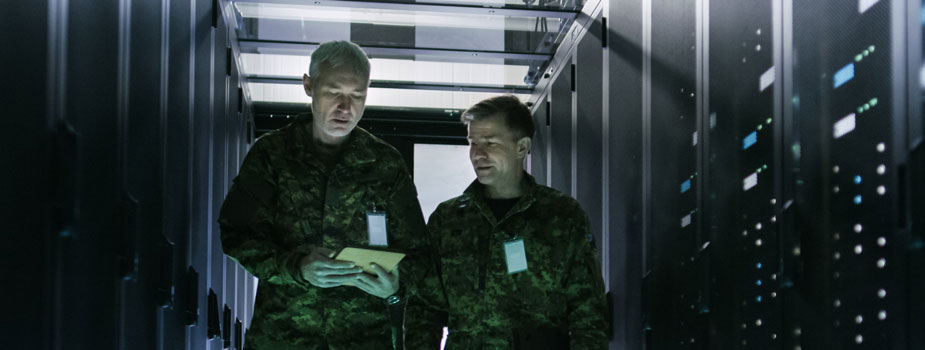Maximizing Mission-Critical Performance with GPU Accelerated Computing in Aerospace and Defense Applications

Swift data processing and analysis play a critical role in decision-making and maintaining a competitive edge over the adversary in the aerospace/defense industry. Maximizing performance is a critical objective. Whether it’s developing next-generation aircraft, designing advanced military hardware, or running complex real-time simulations, the ability to accelerate computing performance is essential to ensure efficient and effective outcomes.
GPU accelerated computing has emerged as a game-changer in this area. GPU accelerated computing means using graphics processing units (GPUs) to perform complex computing tasks in parallel with the central processing unit (CPU). GPUs are designed to handle large amounts of data and can execute multiple tasks simultaneously, making them ideal for computationally intensive workloads in aerospace and defense.
With this ability to perform complex computations in real-time, GPUs have found widespread application in aerospace and defense, helping agencies maximize their performance.
Use Cases for GPU Accelerated Computing in Aerospace and Defense
GPU accelerated computing has the potential to revolutionize the aerospace industry by enabling faster and more efficient simulation and modeling of complex systems. In aerospace engineering, GPU accelerated computing has been used to simulate and analyze the performance of aircraft engines, flight control systems, missile propulsion and guidance, and structural components. This technology allows engineers to model, simulate, and test aircraft designs in real-time, reducing the time required for testing and increasing the accuracy of the results. With GPU accelerated computing, aerospace companies can design and test new aircraft more quickly and efficiently, leading to significant cost savings and faster time-to-market.
Similarly, in defense applications, GPU accelerated computing has the potential to enhance situational awareness and decision-making capabilities. The use of GPU accelerated computing allows for real-time processing and analysis of data from various sources, including satellite imagery, radar systems, and unmanned aerial vehicles (UAVs). This technology enables military personnel to quickly and accurately identify potential threats and take appropriate action, leading to improved operational effectiveness and better outcomes.
Other use cases include:
- Image and signal processing: The aerospace and defense industry often deals with large volumes of image and signal data. GPUs can accelerate the processing of this data, enabling quicker analysis and decision-making.
- Machine learning (ML): Machine learning is becoming increasingly important in aerospace and defense applications, particularly in areas such as autonomous vehicles and drones. GPUs can accelerate the training of machine learning models, allowing for quicker and more accurate decision-making.
- Cryptography: In the aerospace and defense industry, secure communications are critical. Cryptography algorithms can be computationally intensive, and GPU accelerated computing can be used to accelerate the encryption and decryption process, providing faster and more secure communications.
- High-performance computing (HPC): Many aerospace and defense applications require high-performance computing, which is often achieved through the use of clusters of CPUs. However, GPU accelerated computing can also be used to achieve HPC, providing a cost-effective and efficient solution.
GPU Accelerated Systems
Small workstation-sized systems are an ideal option when you need high-performance computing resources without requiring a full-scale server. GPU accelerated workstations offer a great balance between processing power and affordability.
The NVIDIA A100 Tensor Core GPU is a popular choice for aerospace and defense workloads. It is a powerful accelerator that delivers significant performance gains for a wide range of computing workloads. The A100 can efficiently scale up to thousands of GPUs or, using multi-instance GPU technology, be partitioned into seven isolated GPU instances to expedite workloads of all sizes.
Its Tensor Core technology accelerates more levels of precision for diverse workloads, speeding time-to-insight. This increase in performance is especially useful for large-scale AI and HPC workloads, where time-to-insight is critical.
For larger-scale workloads, server clusters are a smart choice. Server clusters consists of multiple servers connected by a high-speed network, enabling users to run computationally intensive tasks on a much larger scale than is possible with a single workstation or server. They’re designed to handle large-scale workloads that require massive amounts of memory and storage.
With high computational power and memory, server clusters allow users to perform simulations on a much larger scale. They also provide increased scalability, enabling users to increase the number of servers in the cluster as their computing needs grow.
The NVIDIA H100 Tensor Core GPU is ideal for use in server clusters. It enables an order-of-magnitude leap for large-scale HPC with unprecedented performance, scalability, and security. With its NVLink system allowing direct communication between up to 256 GPUs, the H100 accelerates every task up to exascale size workloads. Systems with NVIDIA H100 GPUs support PCIe Gen5, gaining 128GB/s of bi-directional throughput, and HBM3 memory, which provides 3TB/sec of memory bandwidth, eliminating bottlenecks for memory and network-constrained workflows.
Using GPU Accelerated Computing in Aerospace/Defense
GPU accelerated computing can be a game-changer for aerospace and defense applications, enabling faster and more accurate simulations, image and signal processing, machine learning, cryptography, and high-performance computing. With the increasing demand for more advanced technology in this industry, GPU accelerated computing is becoming more critical than ever before.
Silicon Mechanics offers customized GPU systems designed to meet your specific needs. Our servers are built using high-quality components and are optimized for performance and efficiency, making them an ideal solution for aerospace and defense workloads. We offer a range of GPU servers, from small workstation-sized systems to large-scale server clusters.
Learn more about how we can help you accelerate your performance and view our wide range of custom GPU servers at https://www.thinkmate.com/systems/servers/gpx
About Silicon Mechanics
Silicon Mechanics, Inc. is one of the world’s largest private providers of high-performance computing (HPC), artificial intelligence (AI), and enterprise storage solutions. Since 2001, Silicon Mechanics’ clients have relied on its custom-tailored open-source systems and professional services expertise to overcome the world’s most complex computing challenges. With thousands of clients across the aerospace and defense, education/research, financial services, government, life sciences/healthcare, and oil and gas sectors, Silicon Mechanics solutions always come with “Expert Included” SM.
Latest News

In today's data-driven environment, a one-size-fits-all storage solution isn't enough.

Deciding Between Intel Xeon 6 P-Cores and E-Cores: Which Fits Your Workload?
With Intel's latest Xeon 6 processor release, businesses now have two distinct core options to choose from: Performance-cores (P-cores) and Efficiency-cores (E-cores). But how do you determine which is the right fit for your specific computing needs?
READ MORE